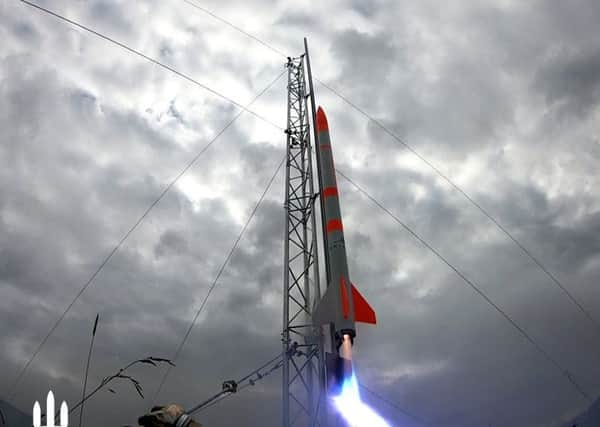Scotland can be at cutting edge of new Space Age – Dr Jack-James Marlow


I remember my first attempted trip to Scotland in a Renault Clio back in 2005, just after passing my driving test. I got to Carlisle and needed fuel. There was no sat-nav, so an AA map had to suffice. One wrong turn later and I was hopelessly lost in the dark on single-track lanes a long way from my hometown of Liverpool.
In 2019, that precarious situation is almost impossible to imagine, with navigational tools built into most mobile phones and drivers able to get from one side of Europe to the other, thanks to the GPS satellite constellation.
Advertisement
Hide AdAdvertisement
Hide AdSatellites play a significant role in today’s world and will play an even bigger part in tomorrow’s. Did you use contactless payment today, or check the weather before leaving home? You wouldn’t be able to do either without multiple satellites working together.
Scotland manufactures and builds more satellites than any other place in Europe and has a number of potential spaceport sites in the offing, with the London School of Economics predicting a Scottish space sector could be worth around £4 billion in the next decade. There is a significant snag, however. To put a satellite in space requires a rocket launch vehicle and there are precisely zero commercially available rocket launch vehicles in the UK today. Access to space for satellites is also restricted, which limits opportunities for UK companies.
Skyrora has been created as a launch vehicle company to address these issues and challenge the status quo, using our base in Edinburgh and our testing facility in Loanhead to open up access to space and enable more Scottish satellites to enter orbit and to ensure Scotland can realise the potential benefits of space. We plan in time to launch satellites from northern Scotland, ultimately fulfilling a range of critical functions, including monitoring environmental changes brought on by climate change and enabling communities to communicate around the world at faster speeds.
Key to that strategy is the creation of an engine-testing facility at Cockenzie, on the site of the former power station. This will transform an unused brownfield site into a vital building block for a new UK space programme, designed to the highest industrial and safety standards. It will enable us to develop the skills and experience we will need to build rockets in Scotland.
When I was leaving school, I asked the careers advice team how to get a job in space. I was advised to be a bricklayer instead, so outlandish my suggestion had seemed. I would love to change this lack of ambition and the assumption that these types of jobs cannot or will not exist in Scotland. At Skyrora, we believe in unlocking the future by investing in outreach and education is central to our efforts to expand the UK space industry. We already visit schools across the country to highlight the STEM opportunities offered on our doorstep by space. With another facility close to Edinburgh, we can increase the educational opportunities, deepen the pool of potential employees, and broaden the horizons of school-leavers.
It is only by adopting a true partnership approach with government, local authorities, communities, education providers, and others that we can ensure everyone here has the opportunity to benefit from our ambitious plans. This is the dawn of the commercial space age in the UK and Scotland has a chance to be at the forefront of inspiring a whole new generation.
Dr Jack-James Marlow is Skyrora’s engineering manager for launch vehicle integration
